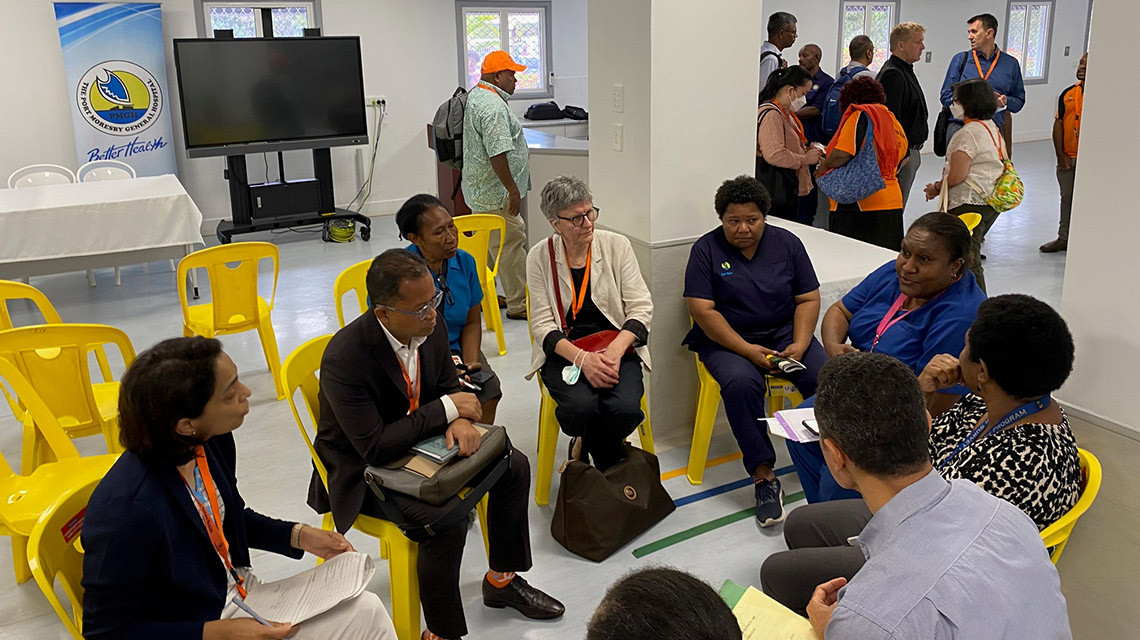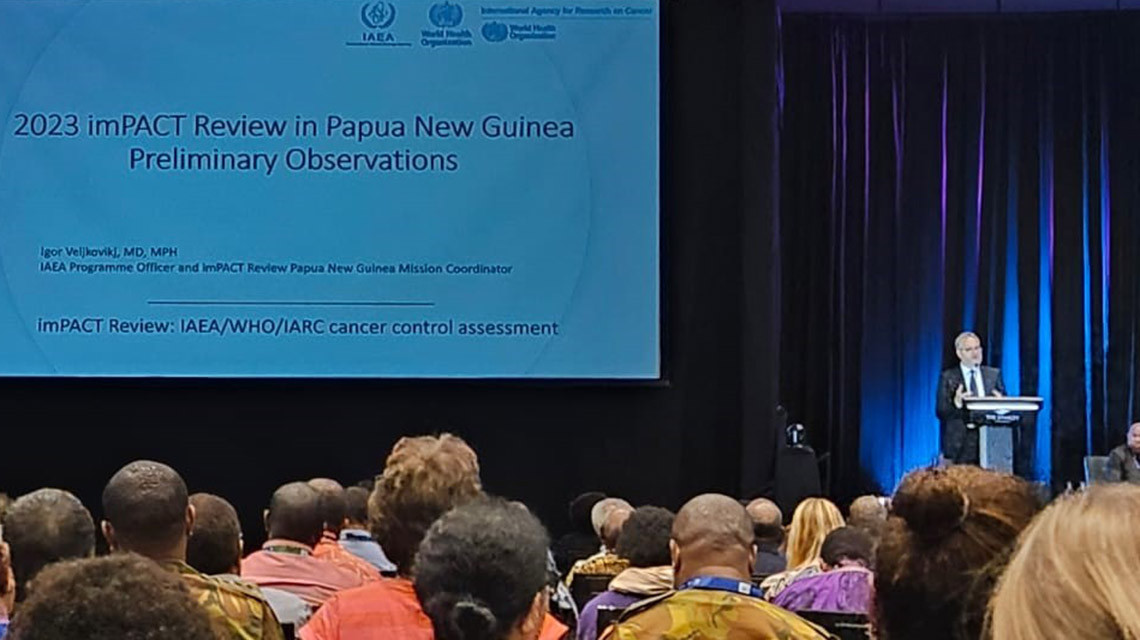Papua New Guinea has taken important steps to increase access to cancer services since the IAEA carried out its first imPACT Review in 2013 together with the World Health Organization (WHO) and the International Agency for Research on Cancer (IARC). In response to the mission's assessment and recommendations for cancer control measures, Papua New Guinea is building a new radiotherapy centre due for completion by the end of this year. Further areas for attention include prevention and early-detection efforts (in particular for cervical cancer) and enhancing the national cancer registration and surveillance system, according to the findings of a team of international experts invited to assess the cancer control situation in the country.
The most prevalent form of cancer in Papua New Guinea is currently breast and cervical cancer, followed by oral, liver and prostate cancer. Total cancer cases are expected to increase by 79 per cent by 2040, with mortality expected to increase by 86 per cent. Given the scale of the problem, Papua New Guinea's Ministry of Health requested a second imPACT Review to assess cancer needs and provide tailored, evidence-based recommendations. The Ministry also indicated Papua New Guinea's interest in participating in the IAEA's Rays of Hope initiative, which aims to increase access to radiation medicine for all.
"Our government is proactively addressing cancer as a priority health issue," said Minister of Health Lino Tom. "Cancer is prioritized under the current National Health Plan (2021-2030), and our goal is to reduce incidence and achieve quality and affordable health care for all by 2030. To do this, we look forward to collaborating with partners such as the International Atomic Energy Agency, World Health Organisation and International Agency for Research on Cancer to strengthen our health service delivery, focusing on prevention and early detection through the support from global cancer programmes such as the Cervical Cancer Elimination Initiative" he added.
The new imPACT Review mission, carried out from 5 to 12 September 2023, was conducted by a team of 13 international experts nominated by the IAEA, WHO and IARC.

Experts from the imPACT Review Mission met with a range of stakeholders and visited different public and private hospitals and primary healthcare centres. (Photo: I. Veljkovikj/IAEA)
Over the course of the visit, the team held meetings with a wide range of national and international cancer stakeholders, including the National Department of Health, provincial health authorities, the national regulatory body responsible for radiation safety, local United Nations agencies, development partners and civil society organizations. They also visited different public and private hospitals and primary healthcare centres and attended the 57th Annual Medical Symposium of the Medical Society of Papua New Guinea, where they led four sessions on cervical and childhood cancer planning, cancer registration and on key findings from the imPACT Review Mission.
One such finding highlighted the need to integrate childhood cancer care more fully into the new national plan for cancer control.
"Considering its favourable prognosis and potential of life years saved, childhood cancer should be prioritized in national cancer control plans. Focusing on early detection and referral as well as building capacity at referral centres can result in more children being diagnosed and cured of their cancer," said Jeremy Slone, paediatric oncologist from St Jude Children's Research Hospital.
Another recommendation focused on the need for reliable data to support informed decision-making and resource allocation. "A comprehensive cancer registration and surveillance system is essential to evaluate the success of different cancer control strategies," confirmed Les Mary from IARC.
"The conduct of this Review is very timely, as we expect its findings to inform the development of Papua New Guinea's new cancer control programme," said Javier Romero, IAEA Programme Management Officer for the country. "We also look forward to seeing some of our recommendations implemented under the next cycle of projects that are supported by the IAEA," he added.
The IAEA has been providing Papua New Guinea with assistance in the field of radiation medicine through its technical cooperation programme since 2012, including through the earlier 2013 imPACT Review.

Whilst in the country, experts from the IAEA, WHO and IARC attended the 57th Annual Medical Symposium of the Medical Society of Papua New Guinea to present preliminary recommendations from the imPACT Review mission. (Photo: I. Veljkovikj/IAEA)






